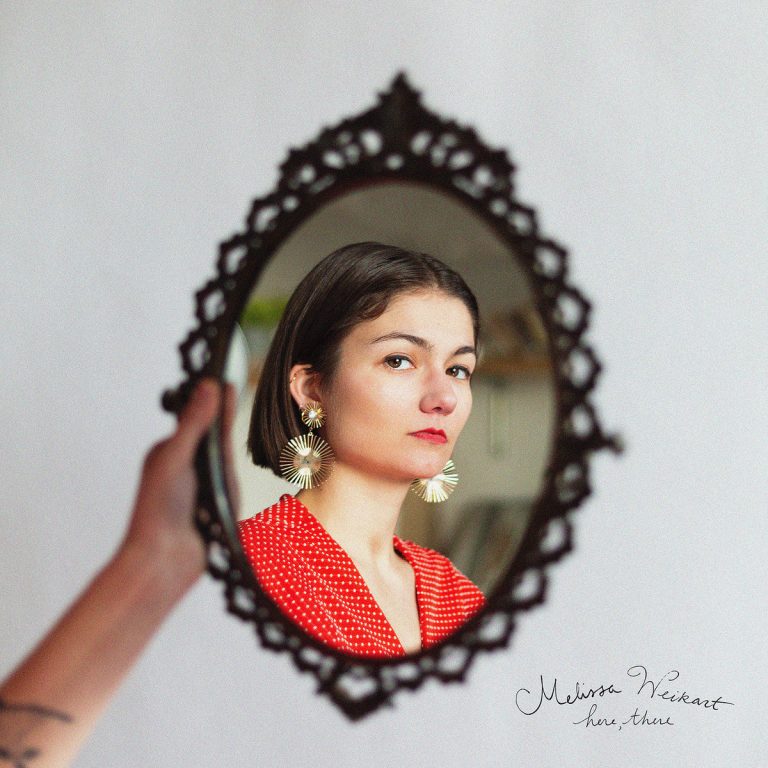On Here, There, Melissa Weikart reaches out with her words. Across the eight tracks on the French/American pianist and composer’s debut album she’s inquisitive (“What’s on your mind? / How’s it going? / What’s in your brain?”), yearning (“All I want is to be wrapped up in your arms”), desiring connection (“Do you hear me, I don’t know if I have the right number anymore”), and on opening track “Diamond”, plain and clear: “I’m just an ordinary human / And I need your love.” Weikart’s words often read simply enough on paper, but, combined with her piano arrangements, her songs feel like thought exercises brought to life, jolting from one moment of pondering to the next. These are “twisted love songs”, as Weikart herself labels them.
She also has a tantalising fondness for turning phrases into mantras that she repeats until all meaning unravels and unspools. “All I want is wrapped up / All I want is to be wrapped up in your arms,” she repeats on the title track. It’s intense and focussed, Weikart exploring all possible meanings of the words until they are meaningless. Alongside her voice the piano notes crumble away from the original accompanying chords as her aim becomes more concentrated further. “In your mouth / In your skin / In your touch / In your hair,” she intones, like she’s hypnotized by her own adoration. Similarly on “Ocean Song” she allures “Come into the water I can make you better / Come into the water I’ll make you remember” multiple times over tumultuous piano chords, like a siren at sea beckoning sailors to their death.
While Weikart might spend repeated moments reiterating her words with intent focus, what helps Here, There is its brevity. The album is just over 22 minutes long, with half of the tracks clocking in at under three minutes. There’s the odd piano solo here and there, but rarely does a moment feel superfluous. It’s her improvisational talent (Weikart is a conservatory-trained classical pianist and improviser) that often feels like what’s driving the tracks; it can be hard to tell if her lyrics and vocal melodies are following and reacting to the notes from the piano or vice versa. And sometimes there is a dazzling disconnect between each of her hands and her voice, all three going off in such different directions that you need another listen through to unpack properly. Her dexterity – especially on the final flurry of notes from the left hand on the discontent closing track “Happy” – is impossible not to appreciate.
Her style is intricate, careful, and even exploratory in the way she trickles up or down an unexpected semitone; avant garde but still tethered to inspirational roots in musical theatre. Chromatic but convergent. At times she is like a more astute and classically inclined Fiona Apple that is also less carnal. (Here, There is also just one side to Weikart: she’s part of electronic experimental duo Beatrice Melissa, DJs monthly on her own radio show, and a few years ago recomposed the Beach Boys’ Pet Sounds album for an all-female vocal choir and rock band.)
Yet there is something standoffish about her style too, something that keeps the listener at arm’s length. Weikart sings with a focussed clarity about wanting (if not needing) love and attention from another, but her knotty and complex piano arrangements can feel labyrinth-like, keeping you out from finding the heart of the song. This could arguably be intentional though; if Weikart wanted to write a simple piano-led love song then she could easily have churned them out here. Instead she goes for compositions that reflect on the dizzying, complex nature of love. It goes up, it goes down, and as she shows us on Here, There, it also goes everywhere in between too.

